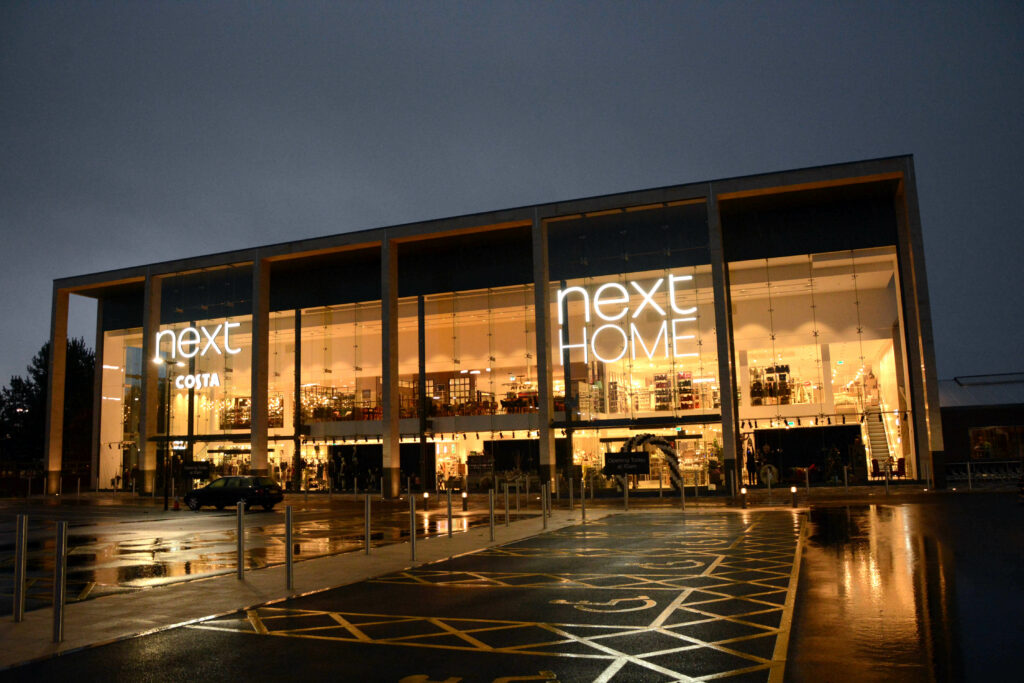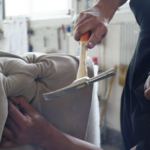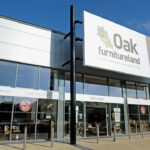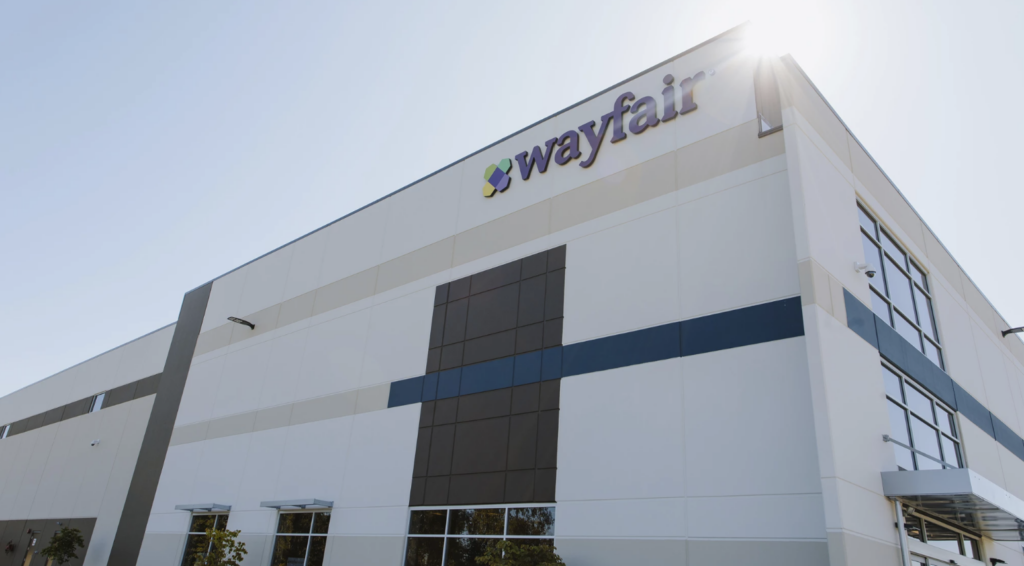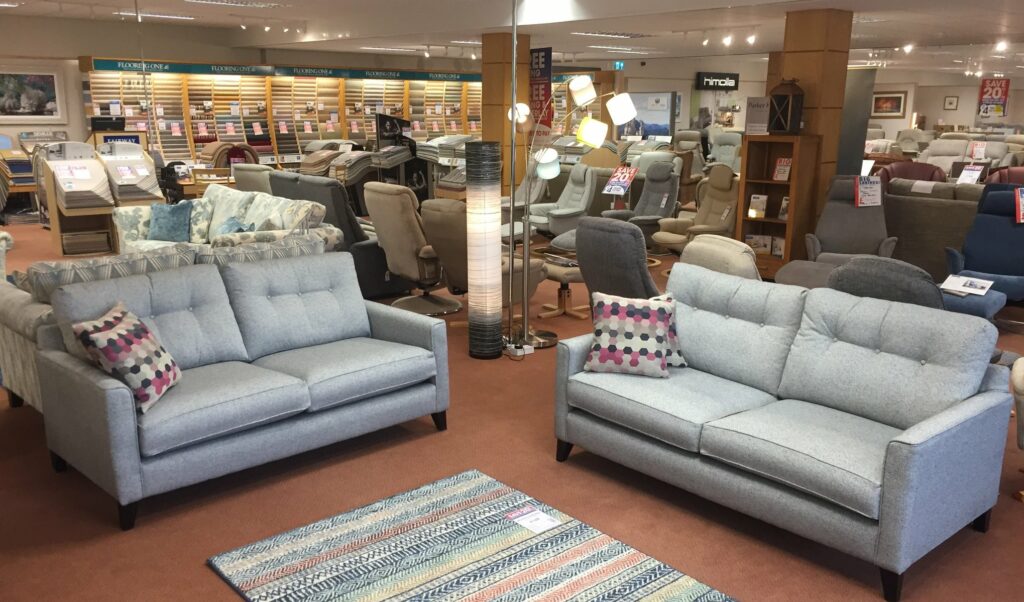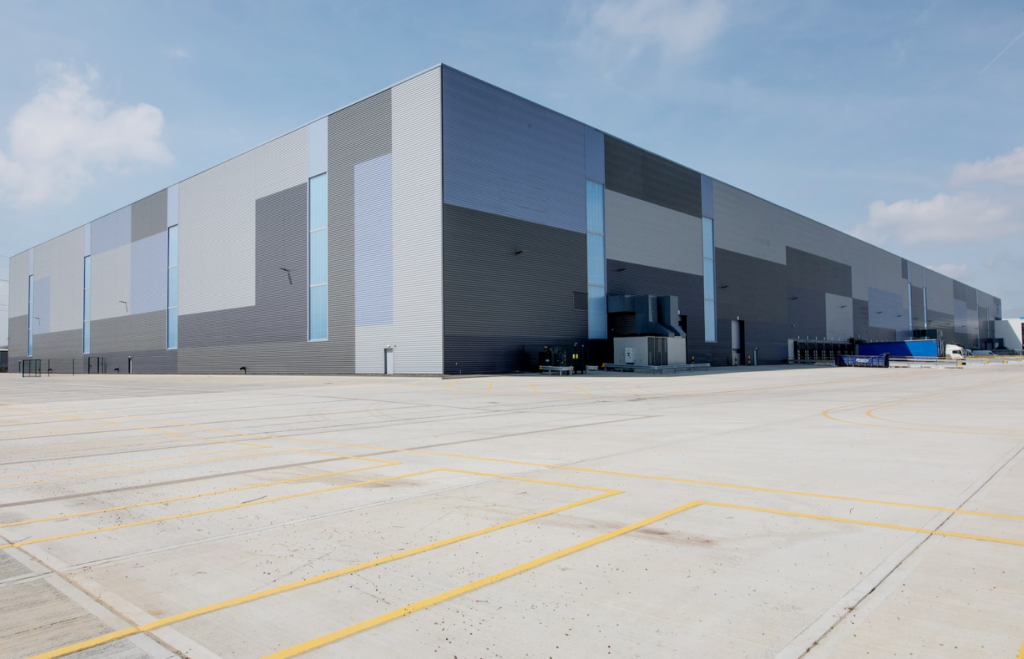In the next part of our ongoing sustainable series, we take a deeper look at clothing and home products retailer Next and what they are doing in terms of sustainability, with a focus on furnishings.
The topic of sustainability continues to be of great importance. From product innovations such as bottle-filled mattresses to greener practices and initiatives, businesses are also adapting new ways of working to make their operations more sustainable. In the next instalment of our series, we explore more of Next’s green credentials.
NEXT
In the recent Corporate Responsibility report to January 2023, Next stated that global issues, such as responsible sourcing, human rights and climate change remain key areas of focus. Behind the scenes, a great deal of work is underway to set solid foundations for a realistic and achievable transition plan to reach net zero. Taking a look at the top-level initiatives, Next said that progress towards its 2025 Responsible Sourcing Strategy, which aims to source 100% of its key raw materials through known, responsible or certified routes by 2025, is on track, while its internal Code of Practice team are continuing to work with suppliers worldwide to meet appropriate labour standards.
“During 2023, we will bring our existing work together to start to develop our circularity framework. To support this, we became one of the founding signatories of WRAP’s Textile 2030 initiative,” Next said. “Signatories have committed to a collaborative approach to accelerate progress towards a circular economy for textiles as well as working to reduce the climate impact of the industry. We will consider the impact our designs and product development can have on the environment and what choices we can make when developing our products.”
Furthermore, Next has made continued progress towards its Science Based Target Initiative (SBTi) approved carbon emission reductions for Scope 1, 2 and Scope 3. “We set ambitious targets to reduce our absolute Scope 1 and Scope 2 carbon emissions by 55% from a baseline year of 2016/17. We are progressing well against this 2030 target,” the retailer said. Other areas include commitments and initiatives to improve the wellbeing of staff, as well as on waste, packaging and recycling throughout the business.
“Our in-house recycling centre located at one of our UK warehouses receives materials for recycling from around 400 of our stores. Once the materials are received they are segregated and baled, before being sent for recycling. Improved procedures within the recycling centre have ensured we have been able to control how these materials are handled when they are received to ensure we maximise the quantity to be recycled,” Next said.
A particular focus on recycling has been towards furnishings. Next has been developing takeback schemes to ensure valuable resources are kept in circulation, including a mattress recycling programme and help for customers to donate unwanted furniture for reuse. “We recognise there is much more to do and that collaboration across the industry is vital”, said the retailer, which added that an overall 95% diversion of waste from landfill was achieved last year.
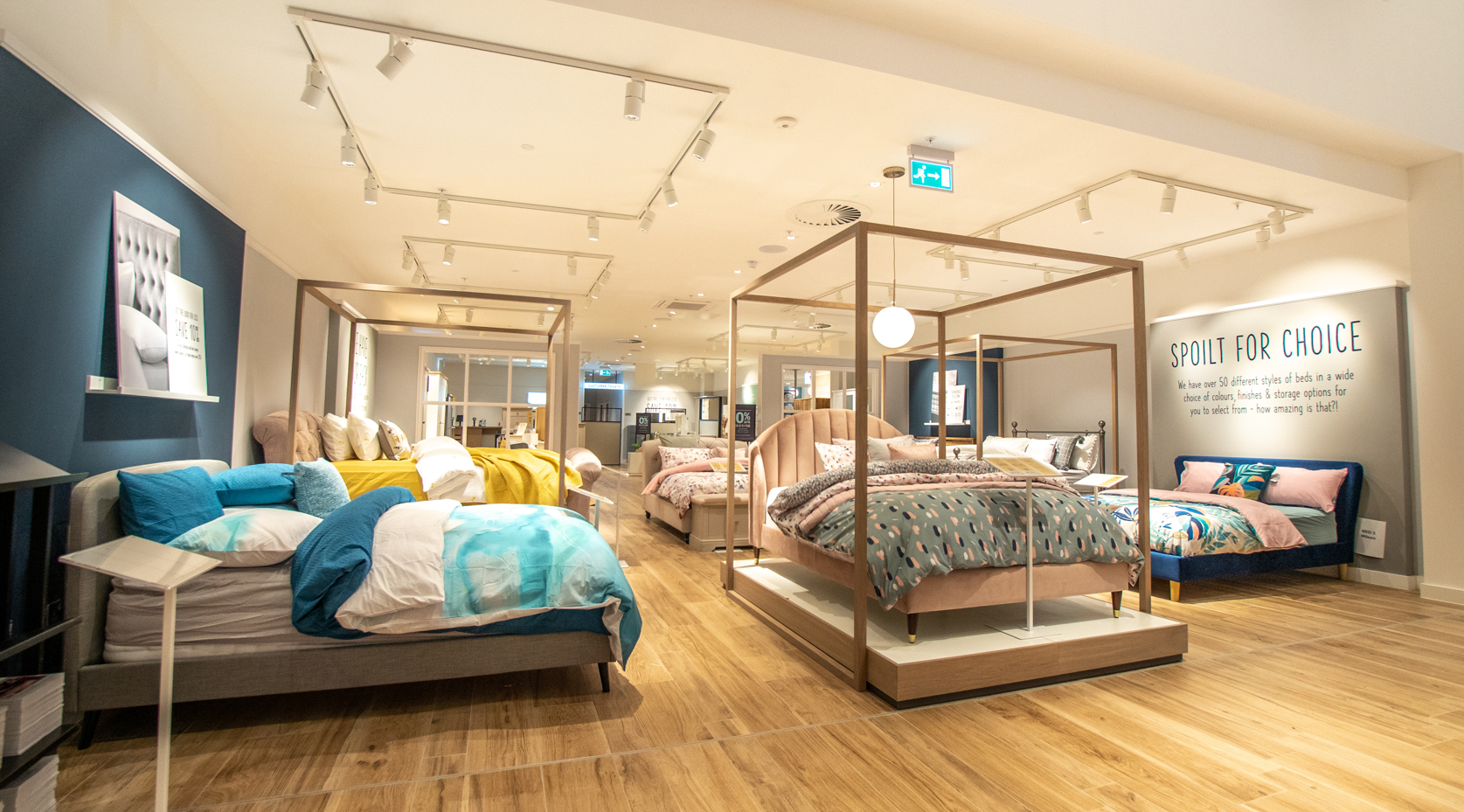
“Mattresses are a difficult waste stream to manage with most old mattresses going to landfill. We offer a solution where customers can request we remove and recycle their old mattress when their new mattress is being delivered,” Next said. “During the year, working with our specialist provider The Furniture Recycling Group (TFRG), we have been able to recycle over 2,300 mattresses diverting over 76 tonnes from landfill.”
In fact, since August 2014, working with TFRG, Next revealed it has helped its customers to divert more than 28,000 mattresses from landfill. The company also has other furnishing partnerships with a number of charitable organisations to reuse products where possible. These include Doncaster Refurnish and the British Heart Foundation (BHF).
Doncaster Refurnish is a social enterprise charity located near Next’s main warehouses and has partnered with the business for more than 10 years. It aims to help the local community by creating sustainable employment and training opportunities. “Through our donations of safe but unsellable or damaged furniture and home accessories, Refurnish generates funding by converting items for reuse and sale. This funding provides much needed services in the community with the additional benefit of diverting tonnes of product from landfill,” Next said.
As for the British Heart Foundation (BHF), Next offers its customers a free furniture collection service for unwanted items such as mattresses and sofas. “All donated items are sold to raise vital funds; our customers’ donated furniture and home products have helped BHF raise over £1.6m with over 12,400 items collected from customers’ homes since we first partnered with them in 2016. It has also diverted hundreds of tonnes of furniture from landfill too,” Next added. During the last year, Next assisted customers to donate around 750 items of unwanted furniture to the British Heart Foundation. The company also developed its ‘Giving at NEXT’ website (giving.go.next/home) to support employees both at work and in their own time to make donations to help their chosen charities.

Moving from recycling to sourcing, one area of focus is timber. Next aims to reduce its impact and to increase social and environmental benefits by only using responsibly sourced timber and paper. As part of its 2025 Responsible Sourcing Strategy, and in line with its Timber Sourcing Policy, Next is committed to working with suppliers to deliver 100% of its products from Responsible or Certified Responsible sources by 2025.
“Responsibly sourced timber is critical to limiting deforestation. These are products that come from a certified forest origin, as well as being assessed as low risk for illegal deforestation, use recycled material, or are sourced from a certified supply chain,” Next said. “This was one of our key areas of focus during the year and we were pleased to increase our use of certified or responsibly sourced timber to 50% (2021/22: 39%). To support our suppliers to provide the best possible sources of timber, we have a programme for auditing, training and species testing. During the year, we worked directly with our suppliers to provide in-country training and timber mitigation expertise, as well as undertake species testing to support compliance with our Timber Policy.”
The report also outlined a number of energy efficiency measures Next is implementing, which include LED lighting that is fitted as standard in new stores and the majority of its existing stores. Next has continued to invest in high efficiency LED lighting, which is now in 55% of its retail stores. “This reduced our lighting energy consumption by around 75% in comparison to the lighting replaced. During the year, we plan to refit 100 stores, and aim to have the balance of stores’ lighting replaced in 2024/25.”

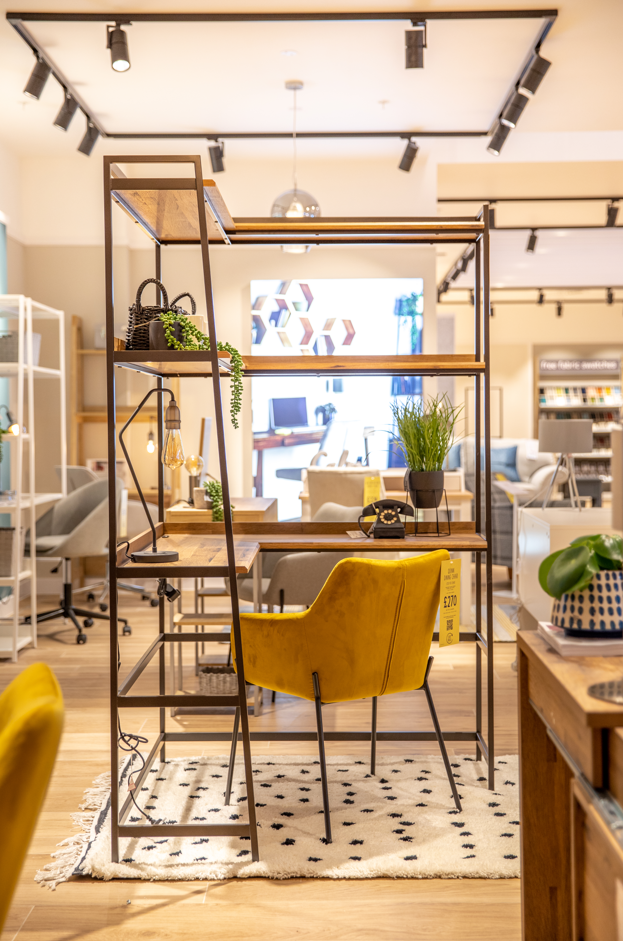
Furthermore, solar panels are installed in a small number of stores and in its Head Office nursery. “Two of our main warehouse sites operates solar PV, with one of the sites running solely on the energy being provided and any excess being exported to the grid. We continue to look for further viable opportunities to install further solar PV to work to reduce our reliance on the grid,” Next said.
Moving to another area of its corporate responsibility is Next’s employment programme with the Prison Service, where one of its warehouse sites has implemented a rehabilitation programme that is now in its fifth year. At the end of 2021, Next Furniture Manufacturing in Doncaster partnered with HMP Lakeside, to set up a bespoke frame assembly production facility. With its own dedicated on-site trainer, Next took a small number of offenders through a 12-week programme to learn all the skills and techniques to become a skilled frame assembler. “At the end of their sentence, the ex-offender will be offered a full-time contract with Next as long as they have successfully completed their training programme. The aim of this initiative is to help support a reduction in the risk of re-offending once in the community and help support the ex-offender’s integration back into society,” Next said.


